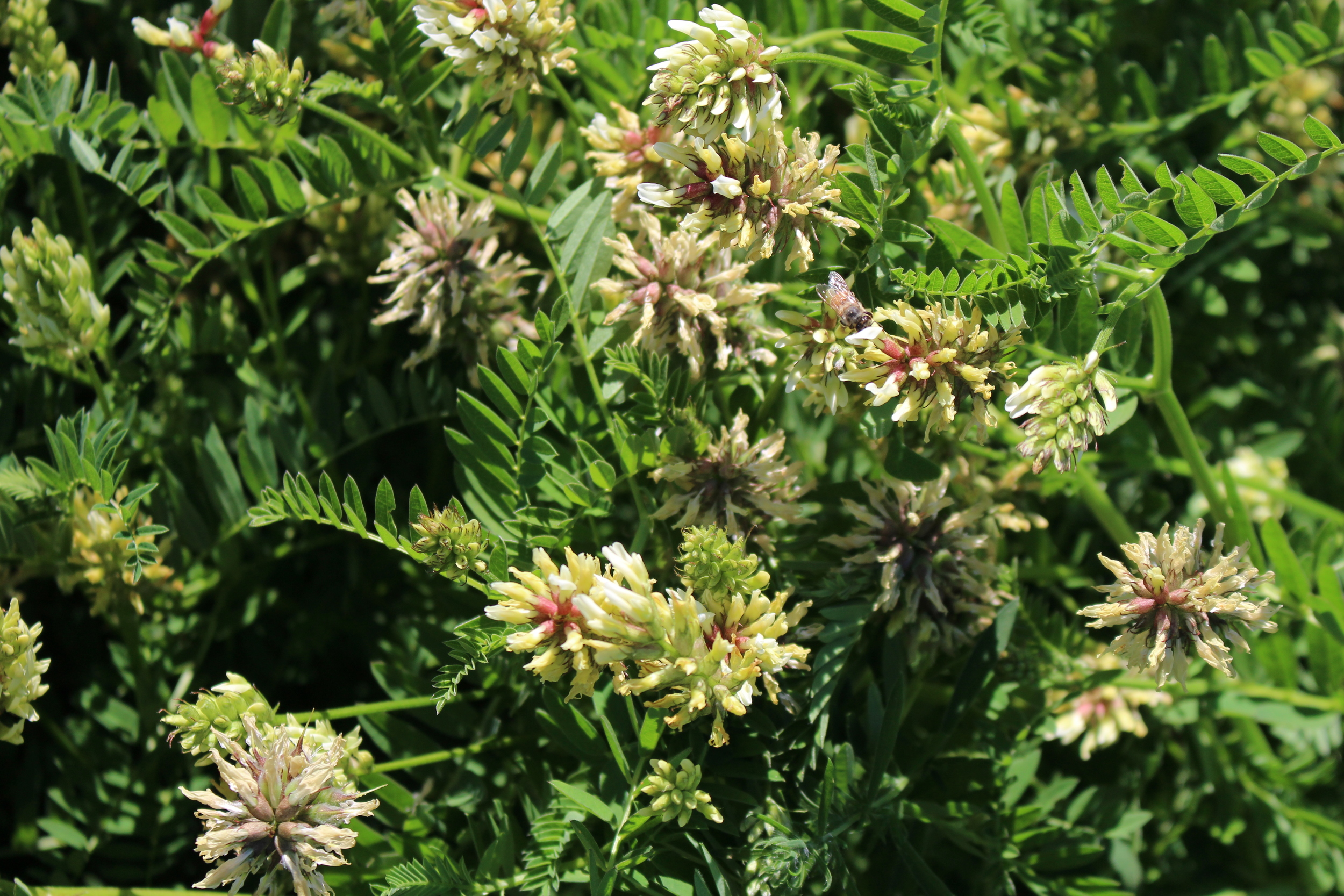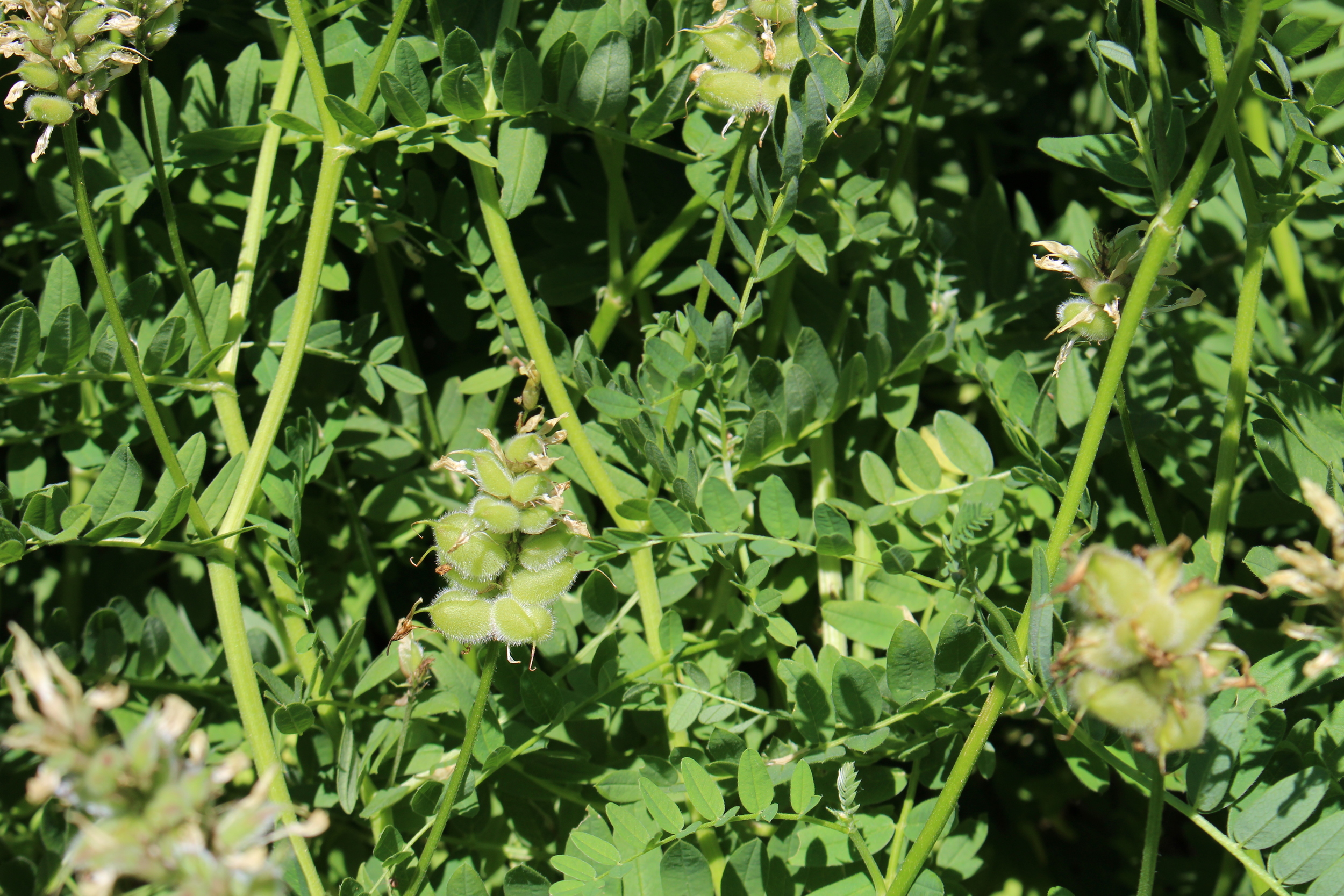Astragalus cicer (Cicer milkvetch)
Long-lived, nitrogen-fixing perennial legume with vigorous rhizomes and showy pale yellow to white flowers. Adapted to all soil textures; moderately tolerant of acidic, alkaline and salty soils. Somewhat drought tolerant, but also suitable for wet subirrigated soils. Cold hardy; up to 7,000 ft. elevation. Non-bloating, excellent for hay and pasture; moderate value for wildlife habitat. Yield is similar to Alfalfa (Medicago sativa) in areas with long growing seasons. Higher protein content than many other legumes, but somewhat less palatable. Heavy grazing stimulates growth and increases stand density. Establishes slowly due to poor seedling vigor, but competitive over time. Also use in mixtures on streambanks, roadsides, mine tailings and as a cover crop in orchards and vineyards. Seeds are eaten by birds, including sage-grouse. Primarily pollinated by native bumblebees. Varieties listed below.
DISTRIBUTION / ADAPTATION
INFORMATION & ATTRIBUTES
Family: Fabaceae
Duration: Perennial, medium lived
Growth Habit: Forb
Native Status: Introduced
Growth Form: Rhizomatous
Mature Height: 12-36 in.
Bloom Color: White
Bloom Period: Early Summer
Annual Precipitation: 16-60 in.
Drought Tolerance: Medium
Shade Tolerance: None
Fire Resistance: Yes
Fire Tolerance: High
Nitrogen fixation: High
Bloat: Non-bloat
SOIL ADAPTATION
Coarse Texture: No
Medium Texture: Yes
Fine Texture: Yes
Salinity Tolerance: Medium
CaCO3 Tolerance: High
pH Range: 6.0-8.5
SEEDING NOTES
Seeds per Pound: 125,000
Seeding Rate: 20-25 lbs/acre
Season: Spring/Fall
Days to Germination: 10-14
VARIETIES
Lutana - Hardy, frost resistant cultivar selected for early spring growth, rapid recovery after cutting, rapid rhizome spread and uniformity of seed maturation. Forage yield is slightly less than comparably adapted varieties of alfalfa, except in areas affected by frost or excessive moisture. (Released 1970)
Monarch - Improved seedling emergence, quicker stand establishment and forage yields greater than or equal to Lutana. (Released 1980)




